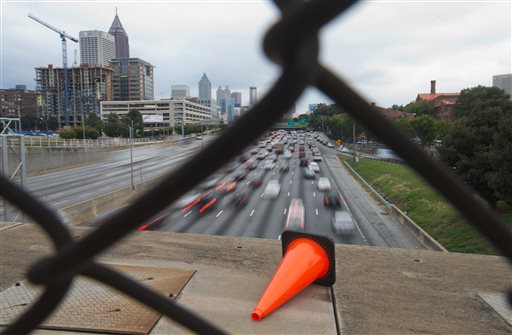ATLANTA - Georgia's highway department is spending thousands of dollars in taxpayer money for rush-hour radio ads that brag about the department but provide little practical information to the public.
The state Department of Transportation bought $12,480 in radio advertising so it could broadcast brief, on-air messages written by the state agency. Those ads will be aired by Georgia Public Broadcasting through June. The value of burnishing the state agency's public reputation is unclear. It's not a retailer like Wal-Mart or Target Corp. selling products to the public. It faces no tangible competition since it's effectively a monopoly.
"It's just trying to get our message out; that's the biggest thing," said DOT Communications Director Karlene Barron, who signed the advertising contract. "Trying to talk about the services we offer, and trying to make sure the public is aware of the services we're offering."
So far, the ads contain little practical information about those services.
"The Georgia DOT - working to deliver quality transportation projects while minimizing unavoidable impacts to people, cultural resources, and the natural environment," the September message says.
The ad in August said the department was doing its legally required job: inspecting bridges and maintaining highways. It boasted that the agency offered "the lowest gas tax in the southeast."
That tax claim is potentially misleading since it lacks important context. Georgia's state excise tax on gasoline is comparatively low in the Southeast. But other state and local charges make the total tax burden per gallon of gasoline more expensive in Georgia than in neighboring Alabama, South Carolina and Tennessee, according to survey data from the American Petroleum Institute, an industry lobbying group.
Future ads may include information about safety initiatives, commuting alternatives or how to use express lanes and variable speed limits, Barron said. The spots refer listeners to the department's website.
If the government is advertising a service or offering useful public information, the spending could be appropriate, said Terry Taylor, vice chair of Common Cause Georgia. Common Cause has not set a formal position on government-funded image advertising, but Taylor said he personally felt the spending crossed a line.
"If, however, as in this case it's self-promotion - there is no public benefit to the message, there's none, it's self-promotional - it is in fact image advertising and that to me seems nowhere close to something the government should be doing," he said.

